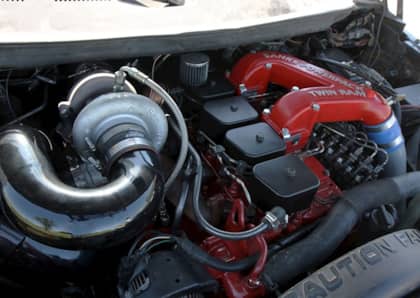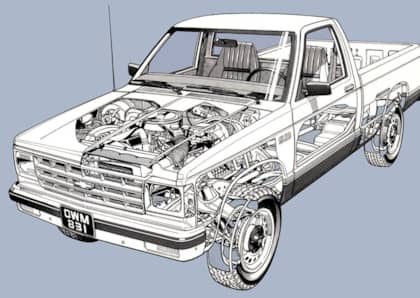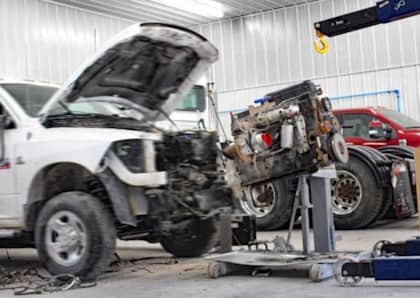A Japanese Jeep? How America Played a Key Role in the History of the Toyota Land Cruiser
While it was small, fuel-efficient passenger cars that allowed Toyota to become so massively successful in the American market, if you go back to the days before the Corona and Corolla and Celica, it was actually the iconic FJ40 Land Cruiser that first helped establish the Japanese automaker on North American shores.

But how exactly did the FJ40 come to be, and was it really anything more than a Japanese-built version of the Jeep? Let’s look back for a quick history lesson.
Military Roots
Like most of the major automakers around at the time, Toyota built military vehicles during the Second World War and after the Japanese surrender and American occupation, the US government contracted Toyota to build their own version of the Willys Jeep for use in the Korean War.

The result was the Toyota BJ which continued to be refined and updated throughout the 1950s, eventually taking on the “Land Cruiser” name.

Like the American Jeep, it was built to be both reliable and simple—and the OHV Toyota inline six engines that powered them were basically copies of the General Motors design.

With the new branding and into the second generation 20 and 30 series models, the Land Cruiser line was expanded to include new body styles and Toyota began exporting them to other markets in small numbers.

Welcome to America
The updated, and now iconic, 40 series Land Cruiser was launched in 1960, and it entered the US market as an affordable entry in the growing recreational 4x4 market.

By the mid ‘60s the Land Cruiser was Toyota’s best-selling vehicle in the US, although still very much a niche model in a time when Toyota passenger cars were few and far between.

And while most recognized the 40-series Land Cruiser as an imitation of the Jeep with its derivative shape, the larger “station wagon” models became more and more popular, taking on what we’ve come to know as the more traditional SUV shape.

Toyota Makes it Big
By the late ‘60s and early ‘70s, smaller more refined passenger cars had come to represent Toyota in America, as well as the compact Hilux pickup, but despite its age the 40-series Land Cruiser soldiered on with its niche but loyal following.

By 1983 Toyota was a dominant player in the US auto market, with Corollas, Camrys, pickups and now Supras representing a thoroughly modern lineup—and it wasn’t until this time that the 40-series Land Cruiser run finally ended in America.
It would be replaced by the more modern and much less “Jeep-looking” 60-series Land Cruiser and from that point on the American market Land Cruiser would evolve into the spacious and luxurious SUV we know today.

In other markets, like Brazil, 40-series Land Cruiser production continued for decades, into the early 2000s—and other International versions of the Land Cruiser would retain the more utilitarian approach of the 40-series.
A Bonafide Legend
Ultimately, the Land Cruiser would become a vehicle that was much more common in markets outside of the US, though the newer versions always had their stateside following.

But the original 40 series would become so beloved that it served as the inspiration for the retro-styled FJ Cruiser that went on sale in the late 2000s and has become a much-desired modern classic itself.

The fact that Toyota no longer offers the most recent version of the Land Cruiser in the US market shows how much things have changed since 1960.

But at the same time there’s no denying the key role America played in both its origin and its evolution into the legendary 4x4 it is today.
More From Driving Line
- Upset that Toyota isn't selling the new 300 series Land Cruiser in America? The new 2023 Sequoia might be a worthy alternative.







